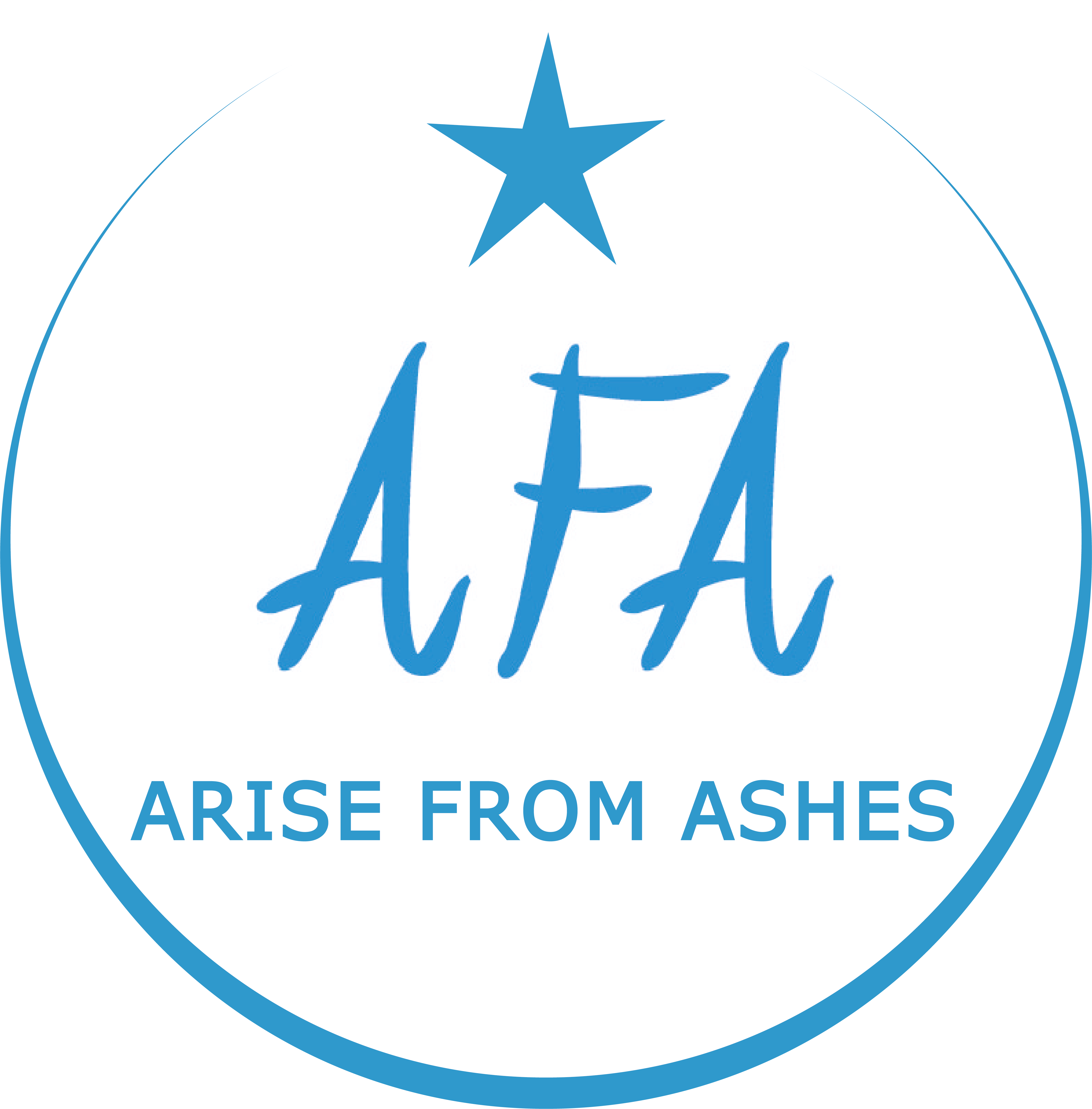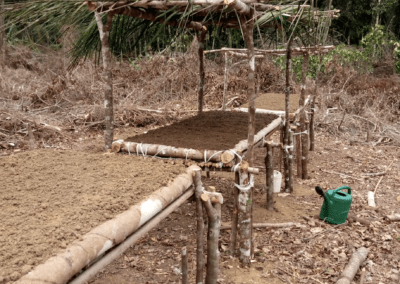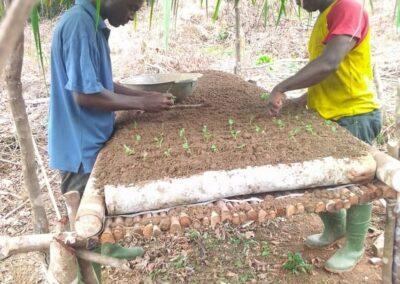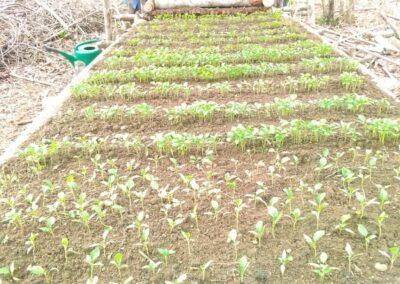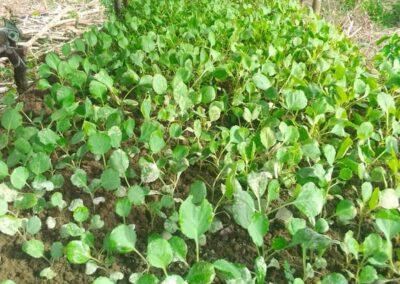What We Do
EVERYONE DESERVES TO HAVE A HOME!
Having a home means having minimum protection, security and a sense of belonging. With a home, anyone can start dreaming of having a meal, start dreaming of looking for a job, start going to school, start founding a family and start building a brighter future. This is not a life they chose to live – it is a condition they inherited because of the war which is completely beyond their will and control.
Arise From Ashes is for an inclusive, fair world. Providing a shelter during vocational training will accelerate their integration into society in a more dignified manner.
Our programs aim at removing stigmas and contributing to a society in which the most vulnerable and marginalized will regain self-confidence, integrity, self-esteem, for a better future – leading marginalized groups to financial independence and social integration.
VOCATIONAL TRAINING EMPOWERS, BUILDS WORKFORCE, SELF CONFIDENCE, DEVELOPS SKILLS, CREATIVITY AND LEADS TO AUTONOMY

There is a huge disparity between the rich and the poor. AFA encourages inclusiveness, especially for the younger generation, through vocational training and skills development to leverage youth employment for a better world. As part of its vocational training strategy, AFA offers life skills in various fields such as agriculture, tailoring and fashion design and many more to come. There is no barrier in the types of skills development and gender. Our vocational training is for both sexes.
AFA also helps advance women’s and girls’ cause by enabling them to explore and develop their creative sides and begin their own businesses.
Challenging unemployment is a difficult task in itself for any youth. Unemployment, especially for the semi-educated, leaves a sense of insecurity. AFA firmly believes that having a dark past is not a guarantee for a dark future.
Permaculture Center
Agriculture is a promising tool to tackle youth unemployment and food insecurity. We started creating a Training Center where young people will learn how to run an organic farm and be prepared to run a successful business on their own.
The creation of the training center will take place in three major stages, the first of which is the agro-ecological farm. This farm is located in Barrobo, Maryland County, Liberia.
It is very necessary to have an operational farm and a good command of production and sales processes before integrating young people into training. This is therefore the objective of this first stage of the project.
The Training Center identified and began with basic products that are among the staple food of the local population: plantains, cabbages, eggplants and peppers. Income generated from the first phase will be used to integrate new crops, always in line with the local population’s consumer behavior.
This center perfectly meets the expectations of the community. It represents a very positive contribution towards youth employment and food security.
Crop cultivation order also respected climate change. The dry season ended in June, much later than the normal period – consequently, the rainy season also started later. The local team therefore began planting plantains, then cabbage, eggplant and pepper.
ACTIVITIES
NURSERIES
Our team of professionals provide special care to the crops. It all starts with nurseries to protect young seedlings from external aggressions while at the same time nourishing them until they get to reasonable sizes to be able to face harsh weather.
These nurseries are temporary and seasonal. Our team will transplant crops as soon as they grow and can face rough weather, they are then transplanted.
ACTIVITIES
NURSERIES
Our team of professionals provide special care to the crops. It all starts with nurseries to protect young seedlings from external aggressions while at the same time nourishing them until they get to reasonable sizes to be able to face harsh weather.
These nurseries are temporary and seasonal. Our team will transplant crops as soon as they grow and can face rough weather, they are then transplanted.
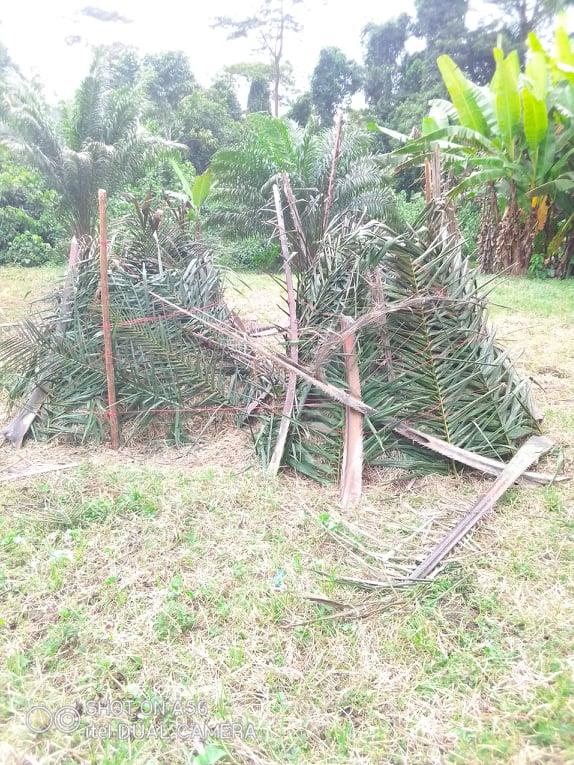
Compost
Wood from felled trees as well as other remnants from the vegetation were collected and used for compost.
PEST MANAGEMENT
Wood ash is used in agriculture as pesticide, fungicide and fertilizer (source of potassium). Thanks to the participation of the community, we were able to get sufficient quantities of ashes to fight and manage pests.
Special nets were used to protect the cabbages from pests.
Agriculture for Women

Every youth deserves quality food for a healthier future. Healthy food is a healthy life.
As part of its poverty reduction strategy, AFA cares for the inclusion of women in agriculture, especially rural women who earn less than their male counterparts in agriculture.
In collaboration with the Village Savings and Loans Association (VSLA) women in Maryland County, AFA is useful in facilitating access to land for these women to cultivate crops and sell in local markets to help them generate income in a more decent manner.
By giving these women access to land they are also empowered through entrepreneurship and higher revenues
AFA set up an agro-ecological pilot project to economically and socially empower young women who are members of the Village Savings and Loans Association in Maryland County. A.F.A. made available several acres of land in Gbekeh to these young women to enable them to cultivate locally consumed products (i.e. plantains, cabbage, peppers, eggplants). These crops are intended to be sold by the young women of VSLA in the markets of surrounding villages. Low-income households do not have access to bank-based funding; consequently, they cannot have easy access to land. Since the local agricultural sector is underdeveloped (subsistence farming), they often have to cross the border to obtain supplies from the Ivory Coast.
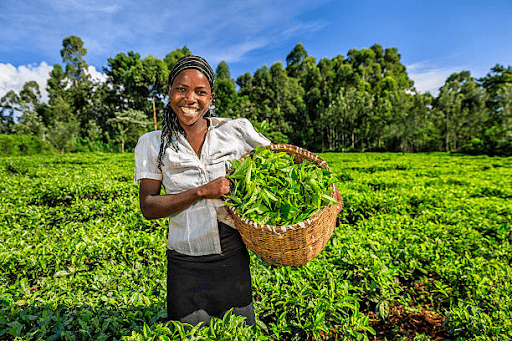
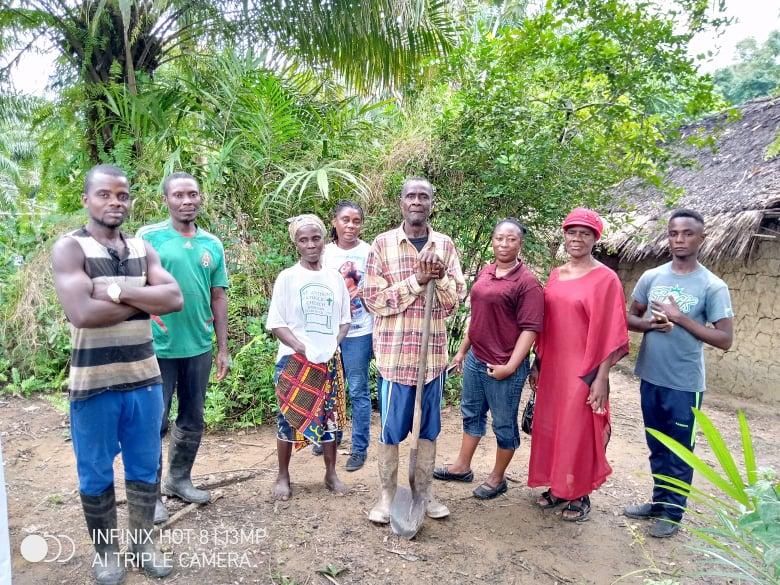
Giving them access to land is a way of making their daily life easier and enabling them to increase their income. As their financial situation improves, these young women will be valued in their households for decision-making. They will also gain their financial independence by participating more in household expenses.
In addition, some of these women cannot afford to support their children’s school fees, these children were out of school – they will finally be able to do so. Children’s education is a problem for a large part of the population, yet it is an important element to end the vicious cycle of poverty.
It is also a way for AFA to disseminate agro-ecological farming techniques to these women due to the fact that each person authorized to cultivate on “Resilience Farm” land must sign our agro-ecological charter which contains all the practices and products that are prohibited on the site. AFA will support them in the transition by training them in natural cultivation methods.
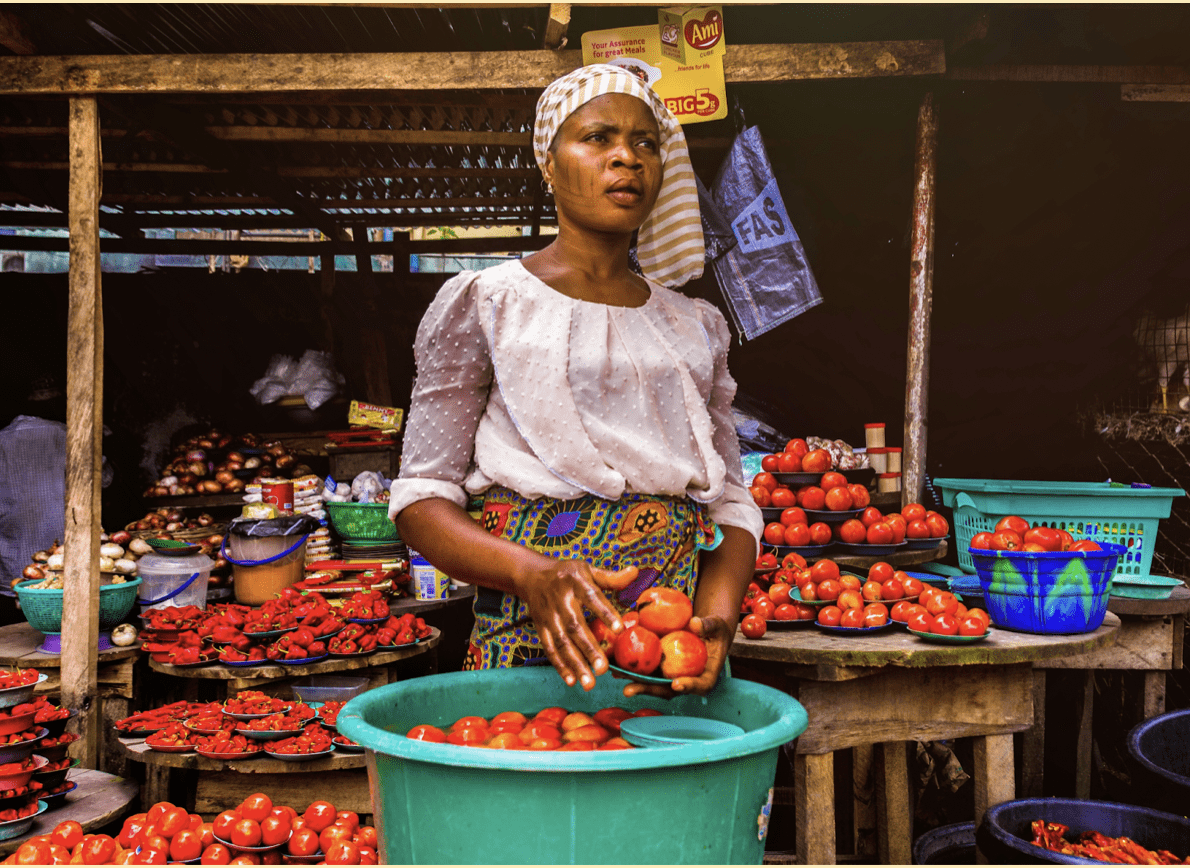
Agriculture for Women

Every youth deserves quality food for a healthier future. Healthy food is a healthy life.
As part of its poverty reduction strategy, AFA cares for the inclusion of women in agriculture, especially rural women who earn less than their male counterparts in agriculture.
In collaboration with the Village Savings and Loans Association (VSLA) women in Maryland County, AFA is useful in facilitating access to land for these women to cultivate crops and sell in local markets to help them generate income in a more decent manner.
By giving these women access to land they are also empowered through entrepreneurship and higher revenues.


AFA set up an agro-ecological pilot project to economically and socially empower young women who are members of the Village Savings and Loans Association in Maryland County. A.F.A. made available several acres of land in Gbekeh to these young women to enable them to cultivate locally consumed products (i.e. plantains, cabbage, peppers, eggplants). These crops are intended to be sold by the young women of VSLA in the markets of surrounding villages. Low-income households do not have access to bank-based funding; consequently, they cannot have easy access to land. Since the local agricultural sector is underdeveloped (subsistence farming), they often have to cross the border to obtain supplies from the Ivory Coast.

Giving them access to land is a way of making their daily life easier and enabling them to increase their income. As their financial situation improves, these young women will be valued in their households for decision-making. They will also gain their financial independence by participating more in household expenses.
In addition, some of these women cannot afford to support their children’s school fees, these children were out of school – they will finally be able to do so. Children’s education is a problem for a large part of the population, yet it is an important element to end the vicious cycle of poverty.

It is also a way for AFA to disseminate agro-ecological farming techniques to these women due to the fact that each person authorized to cultivate on “Resilience Farm” land must sign our agro-ecological charter which contains all the practices and products that are prohibited on the site. AFA will support them in the transition by training them in natural cultivation methods.
Tailoring and Fashion Design School
Vision of the School
Thanks to the COVID-19 pandemic, AFA’s Tailoring and Fashion design school came to existence. COVI-19 pushed us to create novel ideas and activities which began with the need to contribute masks to several communities. Ms. Jemima Erskine and Mr. Kevin Saylee were immediately operational and created hundreds of masks. Due to the high quality of the masks they made, the idea of opening a vocational training center flourished immediately.
Fashion designers are involved from concept to finish in the development and production of clothing lines.
Offering them vocational training is a good way for females to gain economic independence and to help other family members.
Our vision for this school is to offer tailoring and fashion design to students to enable them to fulfill their dreams by having a place in the fashion world. We have often heard that tailoring was one of the last options for youth who perform poorly in schools. We consider tailoring and fashion design to be a profession of its own, a fulfilling career path which entails being meticulous and turned into artistic expressions. We believe that fashion designing adds value to tailoring. Fashion design is a very profitable industry which positively impacts many economies and nations. This industry employs millions of people worldwide.
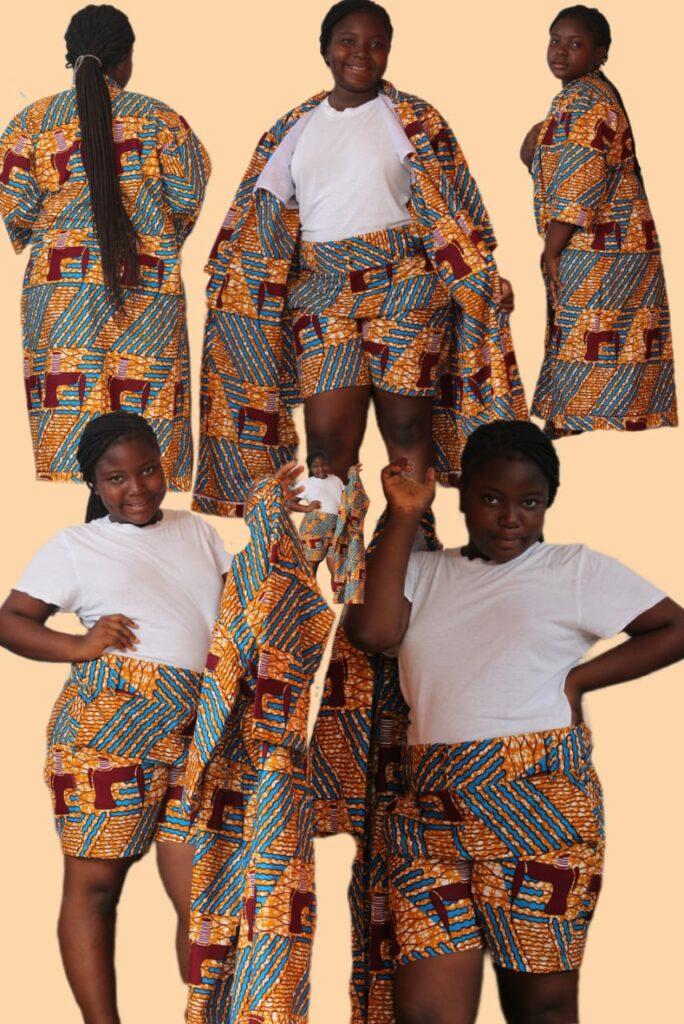
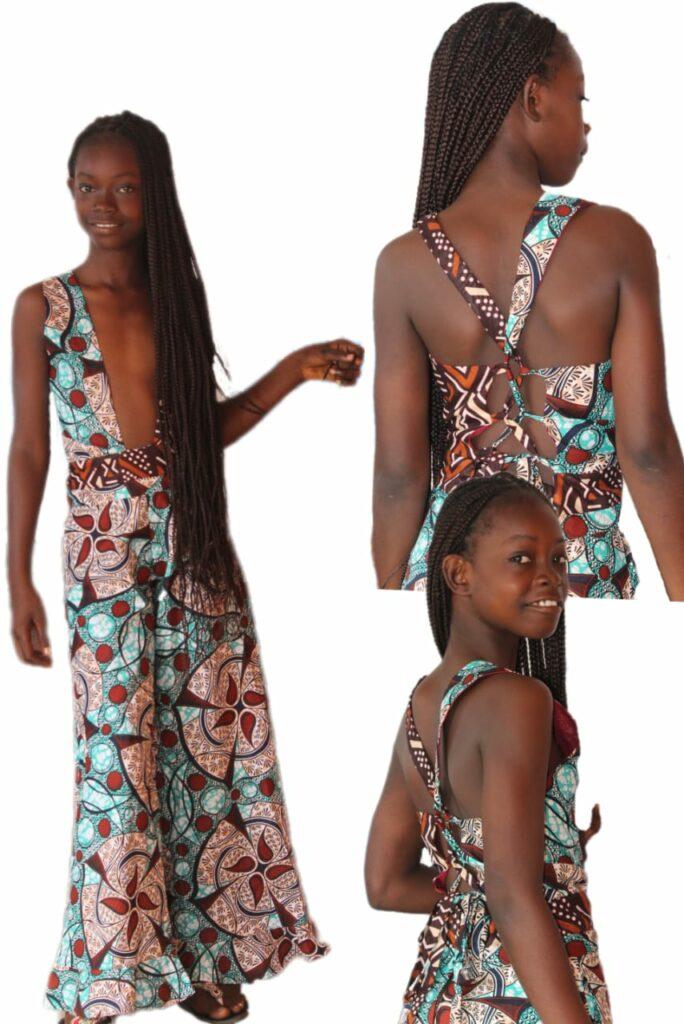
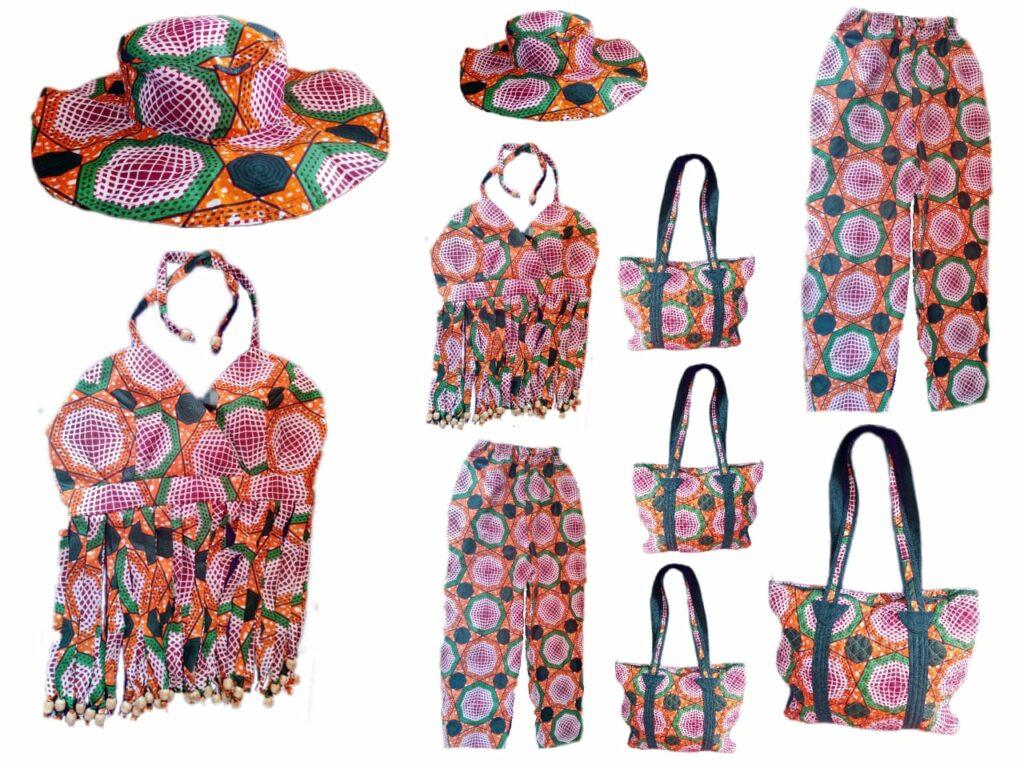
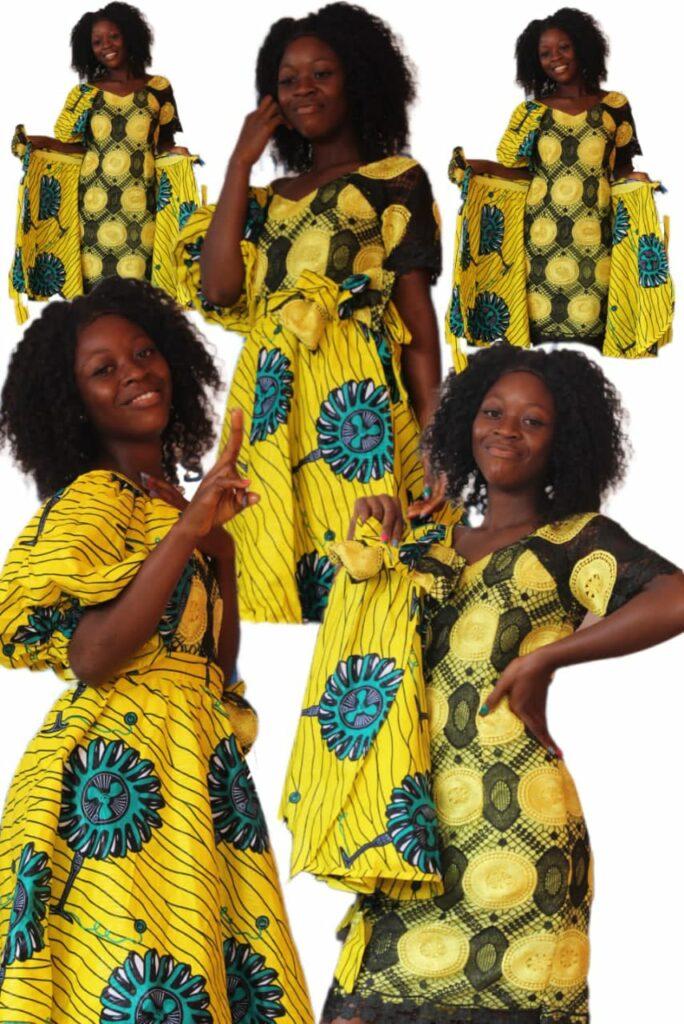
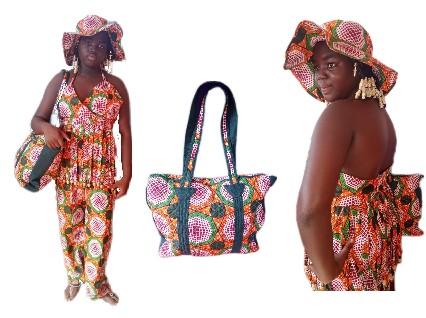
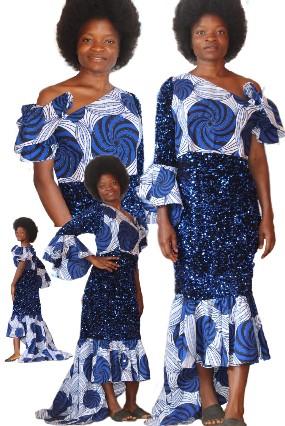
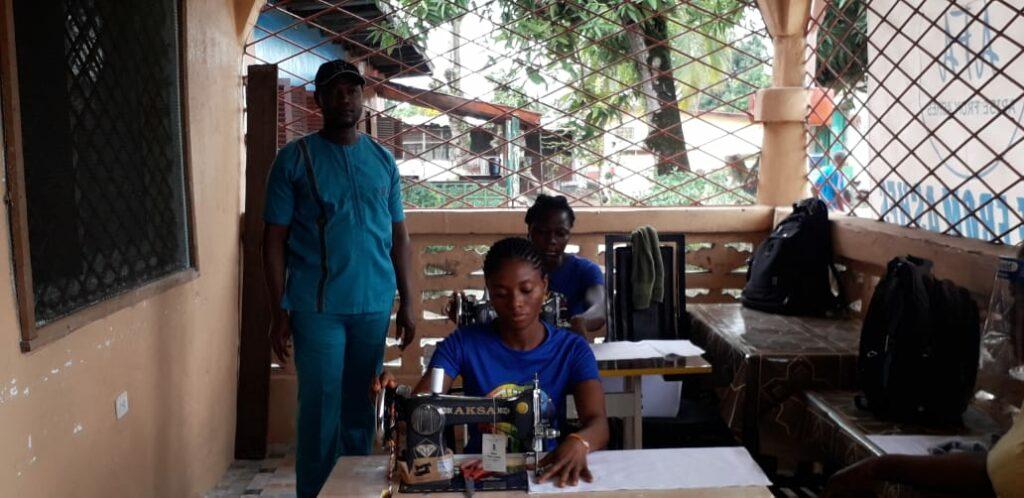
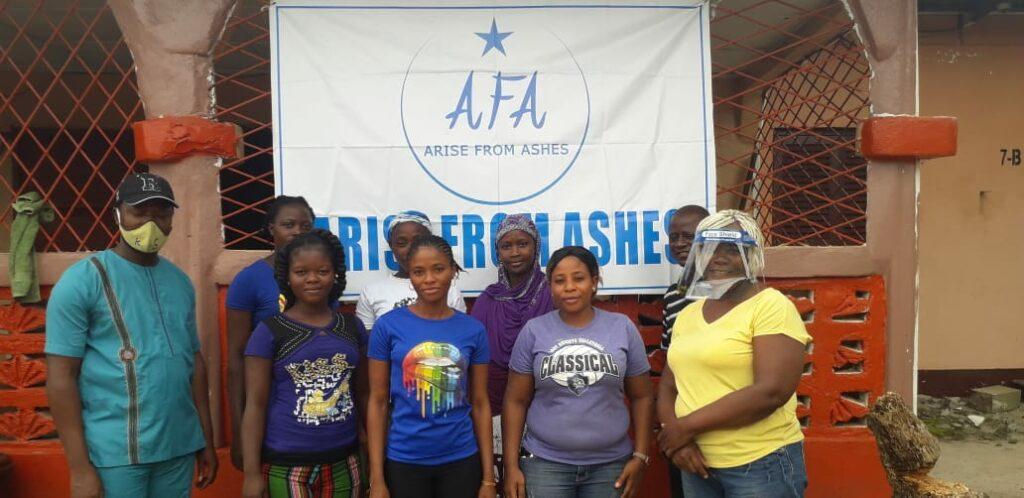
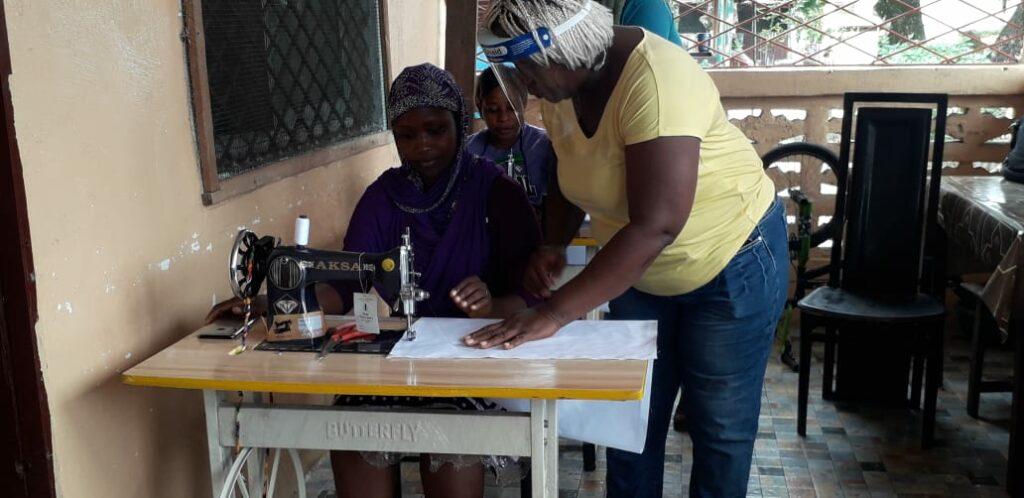
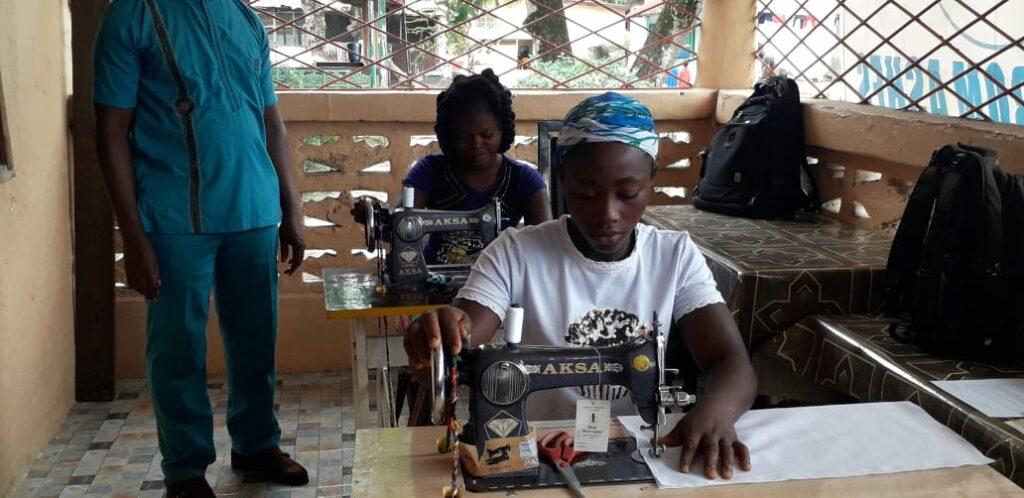

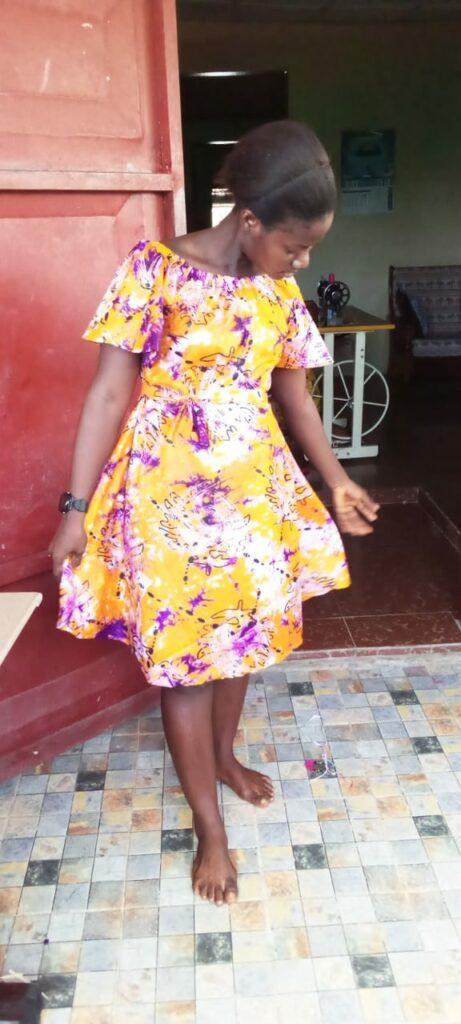
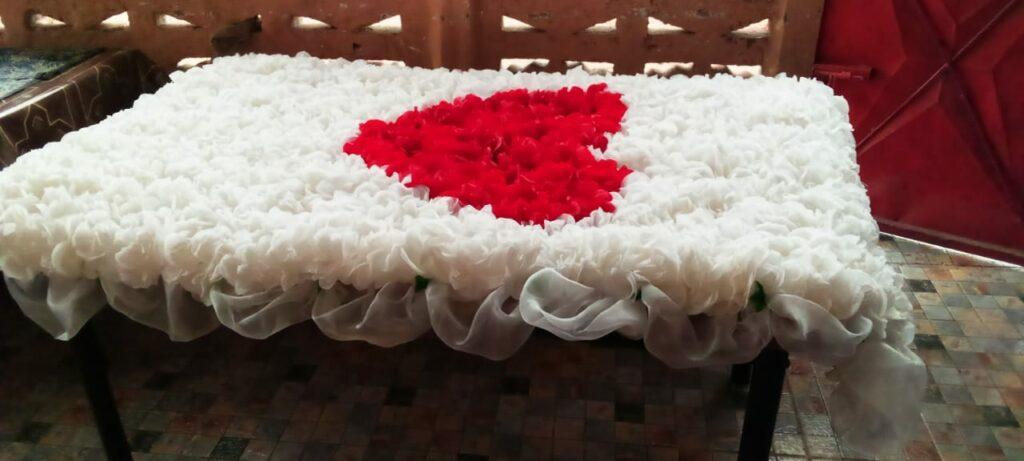
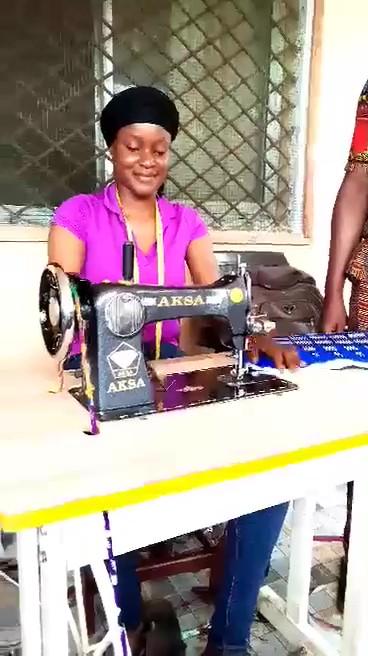
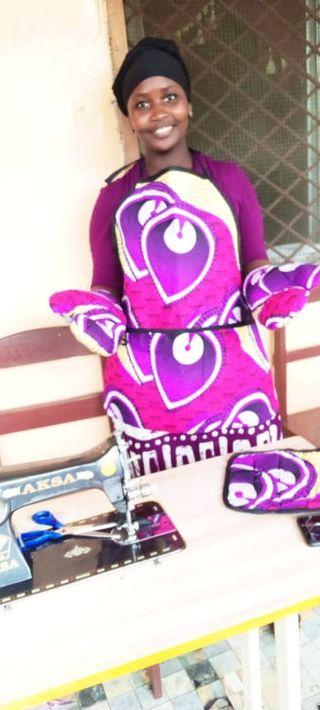
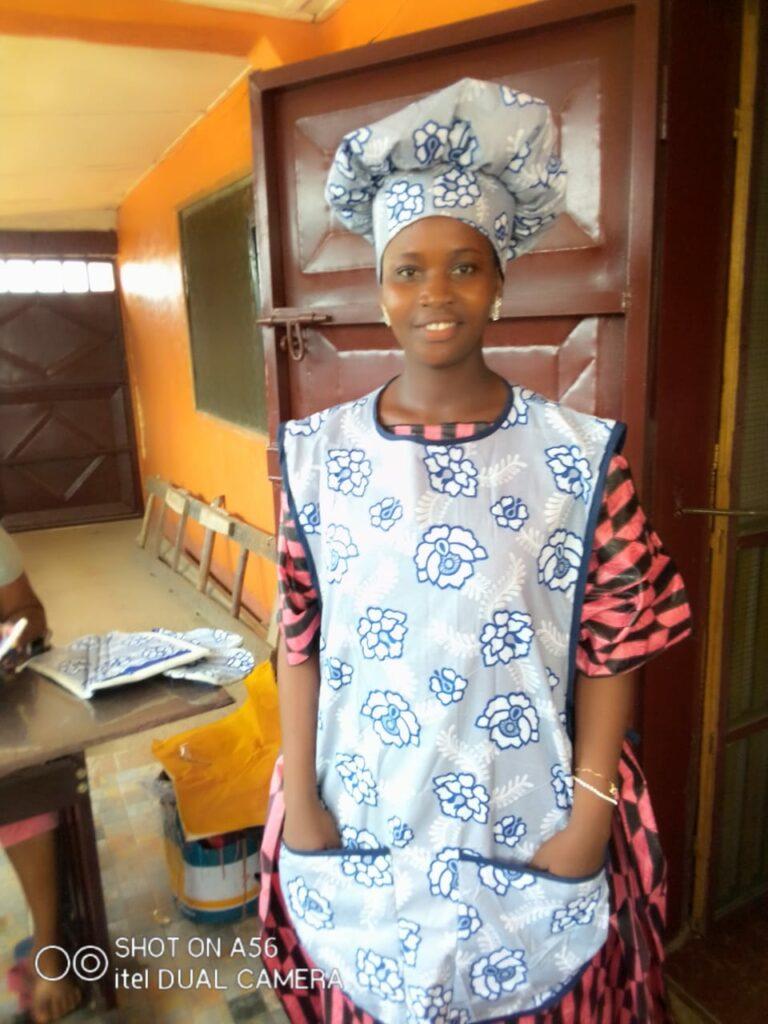
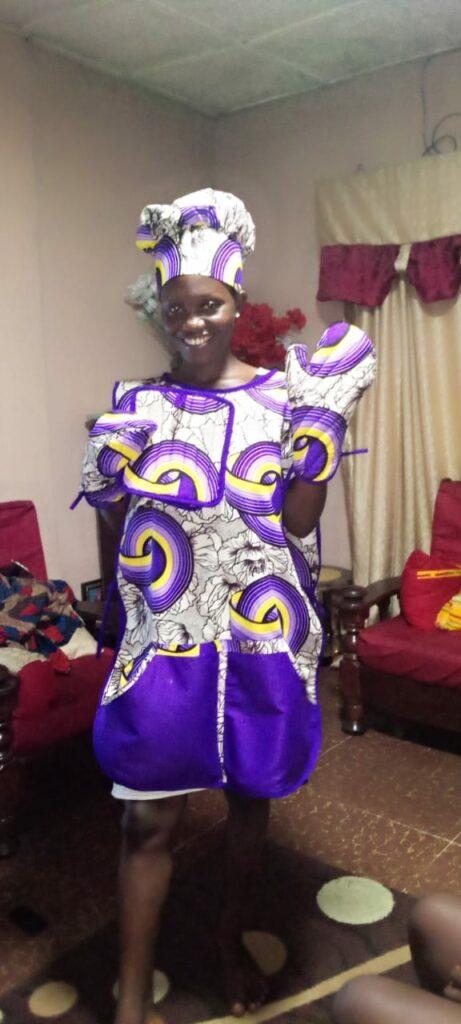

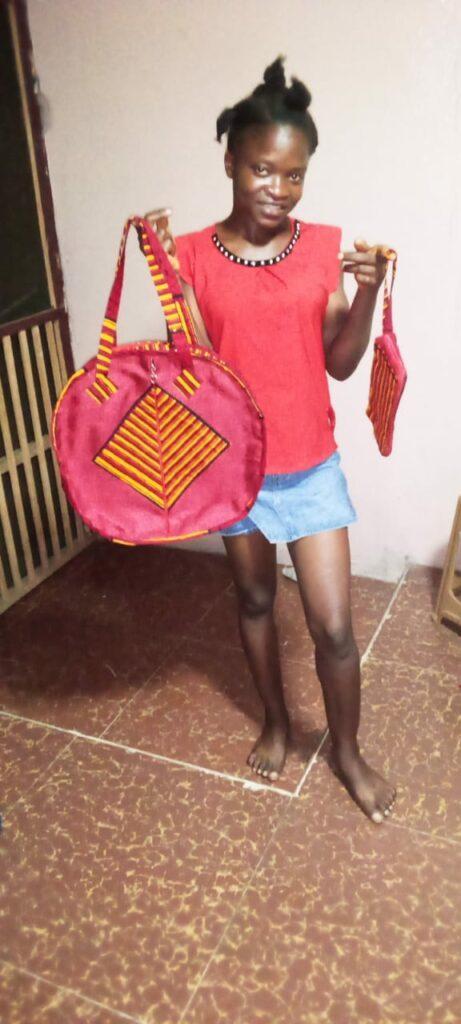
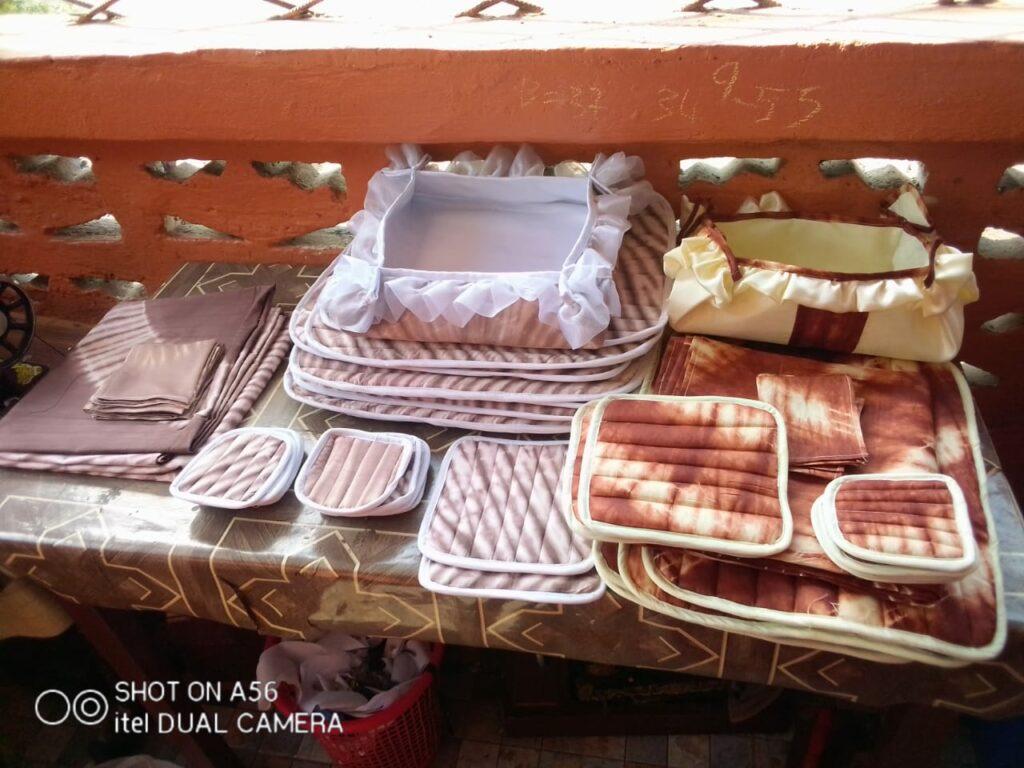
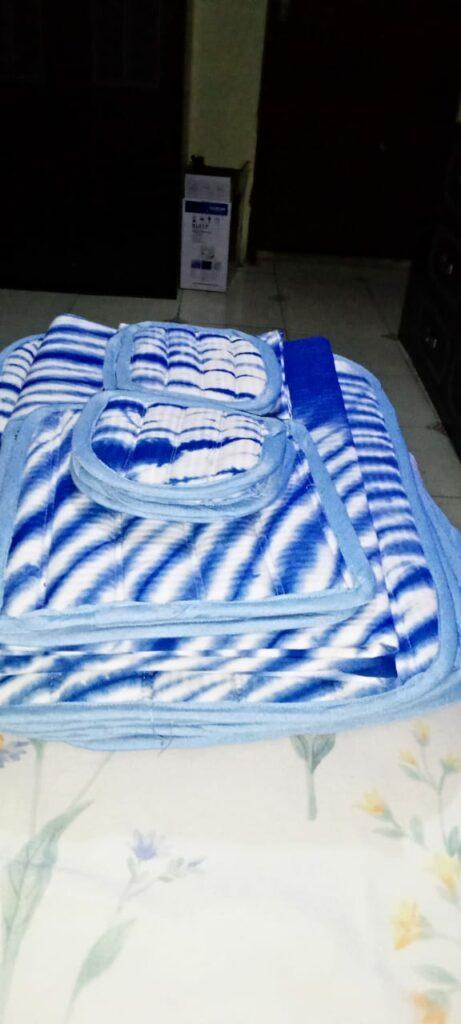
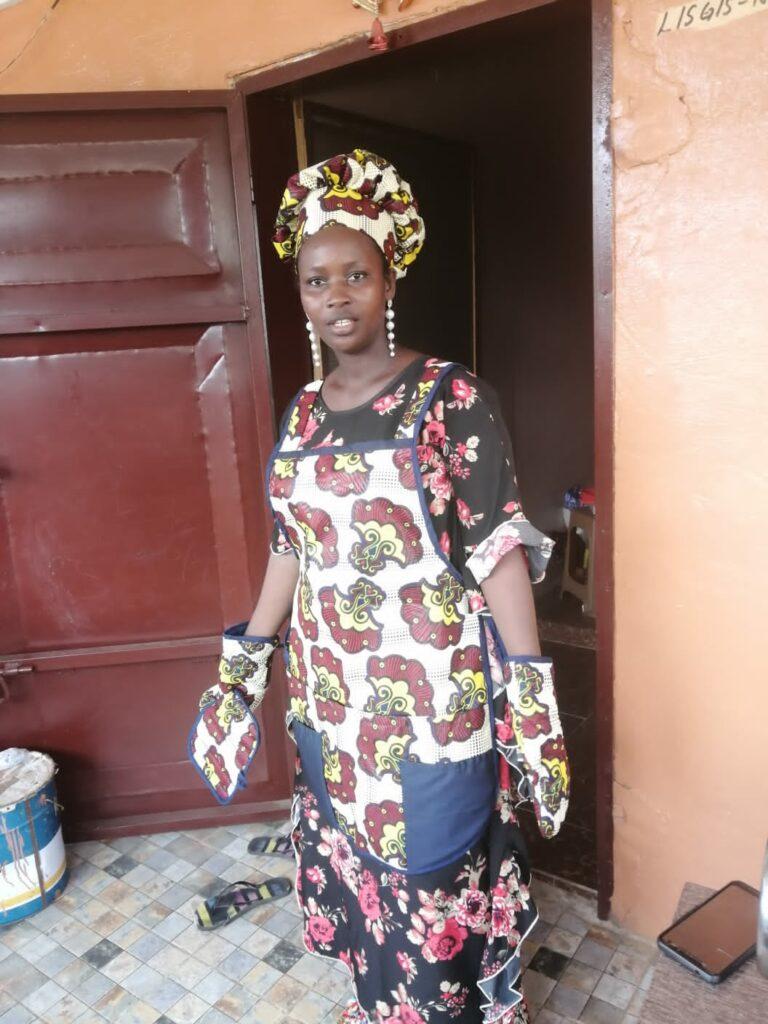
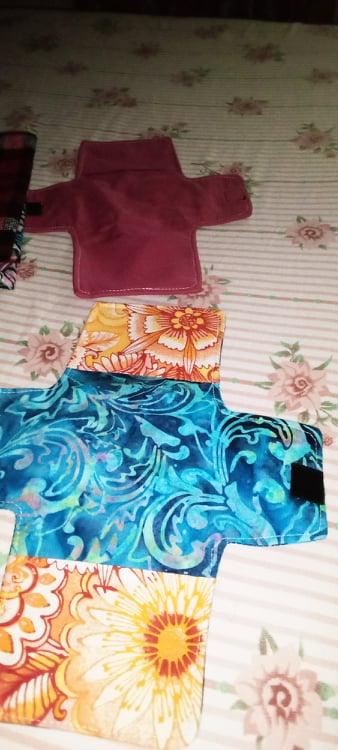
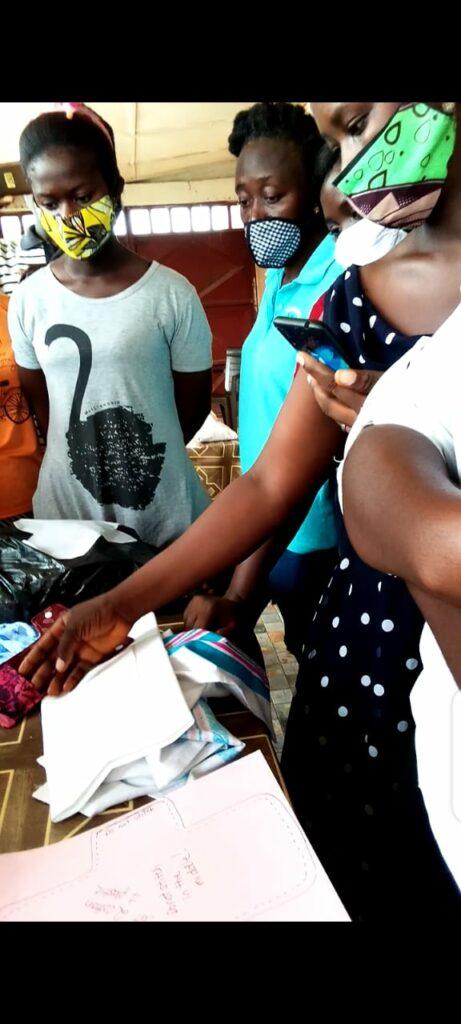
Developing creativity is an integral part of their courses – through various exercises they develop their creativity in order to become excellent designers. They learn how to transform any little idea into a professionally finished item.
We selected girls in the same community in which the school is located to facilitate access to the school.
Skills development in tailoring remains very well-grounded. After 18 months of training, our young female students are making their own garments, those of their families and acquaintances, kitchen and bathroom sets, accessories such as bags, caps, etc.. These new skills they have acquired, reduces the amount of money they, their families, friends, neighbors,would have to pay to outside tailors.
Tailoring and Fashion Design School
Vision of the School
Thanks to the COVID-19 pandemic, AFA’s Tailoring and Fashion design school came to existence. COVI-19 pushed us to create novel ideas and activities which began with the need to contribute masks to several communities. Ms. Jemima Erskine and Mr. Kevin Saylee were immediately operational and created hundreds of masks. Due to the high quality of the masks they made, the idea of opening a vocational training center flourished immediately.
Fashion designers are involved from concept to finish in the development and production of clothing lines.
Offering them vocational training is a good way for females to gain economic independence and to help other family members.
Our vision for this school is to offer tailoring and fashion design to students to enable them to fulfill their dreams by having a place in the fashion world. We have often heard that tailoring was one of the last options for youth who perform poorly in schools. We consider tailoring and fashion design to be a profession of its own, a fulfilling career path which entails being meticulous and turned into artistic expressions. We believe that fashion designing adds value to tailoring. Fashion design is a very profitable industry which positively impacts many economies and nations. This industry employs millions of people worldwide.















Developing creativity is an integral part of their courses – through various exercises they develop their creativity in order to become excellent designers. They learn how to transform any little idea into a professionally finished item.
We selected girls in the same community in which the school is located to facilitate access to the school.
Skills development in tailoring remains very well-grounded. After 18 months of training, our young female students are making their own garments, those of their families and acquaintances, kitchen and bathroom sets, accessories such as bags, caps, etc.. These new skills they have acquired, reduces the amount of money they, their families, friends, neighbors,would have to pay to outside tailors.









